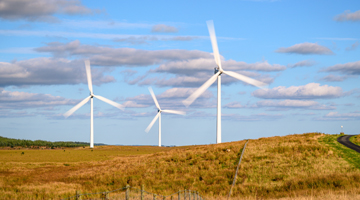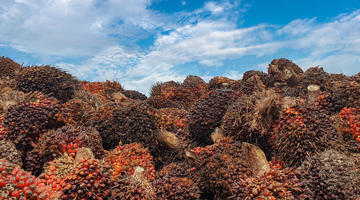 ECI
https://www.3keel.com/wp-content/uploads/2023/11/bean_meals_sf.webp
200
360
Richard Scott
https://www.3keel.com/wp-content/uploads/2023/04/3keel_logo-1.png
Richard Scott2023-11-21 13:15:242024-03-11 10:26:48BeanMeals: Mainstreaming UK-grown beans in healthy meals
ECI
https://www.3keel.com/wp-content/uploads/2023/11/bean_meals_sf.webp
200
360
Richard Scott
https://www.3keel.com/wp-content/uploads/2023/04/3keel_logo-1.png
Richard Scott2023-11-21 13:15:242024-03-11 10:26:48BeanMeals: Mainstreaming UK-grown beans in healthy mealsThe inaugural Soy Transparency Coalition (STC) report assesses key traders present within the global soy supply chain – assessing traders’ commitments, actions, progress, and verification related to sustainable sourcing of soy.
imited transparency within the soy system continues to be a barrier for many companies operating towards the end of the soy value chain. It also acts as a barrier for developing more sustainable systems for the whole soy supply chain, a commodity that is often linked to deforestation and land conversion. The Soy Transparency Coalition (STC), convened by 3Keel, was founded in response to this, as a pre-competitive coalition that aims to help supply chain companies and investors overcome transparency challenges in the soy sector to deliver a sustainable production system.
The STC has now released a public report on the results of their first ever trader assessment. The report assessed 11 trader’s commitments, actions, progress, and verification related to sustainable sourcing of soy. This focused on topics such as deforestation, chemicals use, human rights and governance- highlighting the importance of social as well as environmental responsibility.
All STC members (listed in the report) have committed to taking action off the back of the assessment, contributing towards the aim of making a more transparent and sustainable soy system.
Approach
Traders were identified based on their significance within global supply chains and proposed for inclusion in the questionnaire process. In particular, the assessment focused on determining which traders:
- Have commitments to supply soy responsibly
- Have credible plans in place to achieve their goals
- Are outperforming their peers in sustainable practices
Questionnaires were initially pre-filled with publicly available information by 3Keel before being sent to the relevant trader for review based on their own knowledge of company ambition and actions.
One element of the STC process that makes it different from other assessments is that traders are engaged directly as a part of the process. This took the form of responses to the initial questionnaire with feedback and builds, as well as ongoing conversations about their approach and strategy. For the 2020 assessment, eight of the eleven traders engaged with the process – joining phone calls with STC members to discuss their responses and explain the nuances specific to the soy value chain.
To make the assessments easily comparable, scorecards were produced which were specially built to allow STC members and subscribers to apply their own judgement to the trader responses, measuring them against their own set of unique requirements.
Key report findings
- Transparency remains a blocker, but not with insurmountable barriers. Information requested that was claimed to be commercially confidential differed between traders, suggesting that there is scope for further disclosure in the future.
- Significant variation was found in the definitions used and commitments made across the soy traders assessed, with public statements often ambiguous and exact definitions sometimes unclear.
- Many traders continue to cite a lack of market demand for deforestation and conversion free soy as a barrier to increasing the volumes of certified soy in their supply chain, suggesting that demand from companies further down the value chain is not being communicated up the chain effectively.
- Rates of disclosure of actions taken within the supply chain (e.g. action plans created, producers engaged) were generally low, meaning there was limited evidence available on how the traders’ commitments are leading to action on the ground.
- Despite open criticism from many traders on the accuracy of the current publicly available data on soy sourcing, the disclosure of trader data on sourcing regions was incredibly low, with only one trader disclosing information. This is markedly different from commodities such as palm, where publishing of mill lists is fairly common.
What this means for…
Retail and brands – Despite increasing clarity on retail and brand requirements on soy certification and traceability, these are not necessarily reaching through the supply chain. Policies need to be geared towards generating the market signals needed for meaningful change that work through their physical supply chain to reach producers.
Livestock producers – In their position as either a feed mixer or compound feed purchaser, livestock producers are in a strong position to increase demand deforestation and conversion free soy as the primary users of soy. This could be through their feed specifications, by choosing to preferentially source from traders who meet their sustainability expectations, or by engaging directly with their suppliers to discuss the opportunities for further progress.
Feed companies – This assessment has highlighted that trader actions continue to be driven by customer demand, particularly their direct customers. As such, feed companies play an important role in ensuring that the demand signals – financial or otherwise – from downstream companies, are connected with the traders they are buying from.
Investors – Due to the ambiguity of many public commitments, care and attention should be paid to understanding what and how these relate to their risks and physical supply. This means having a clear understanding of the exact definitions used (particularly key terms such as ‘deforestation’) and demanding the transparent and consistent disclosure of progress made by traders to enact meaningful change within their sourcing regions.
This novel assessment and the recommendations within offers a great opportunity for actors across the global soy market to take action and make material changes to promote social and environmental responsibility. For more information about our work in this area, follow the link to our Sustainable Commodities Practice Area page.

 LEAD
LEAD 





